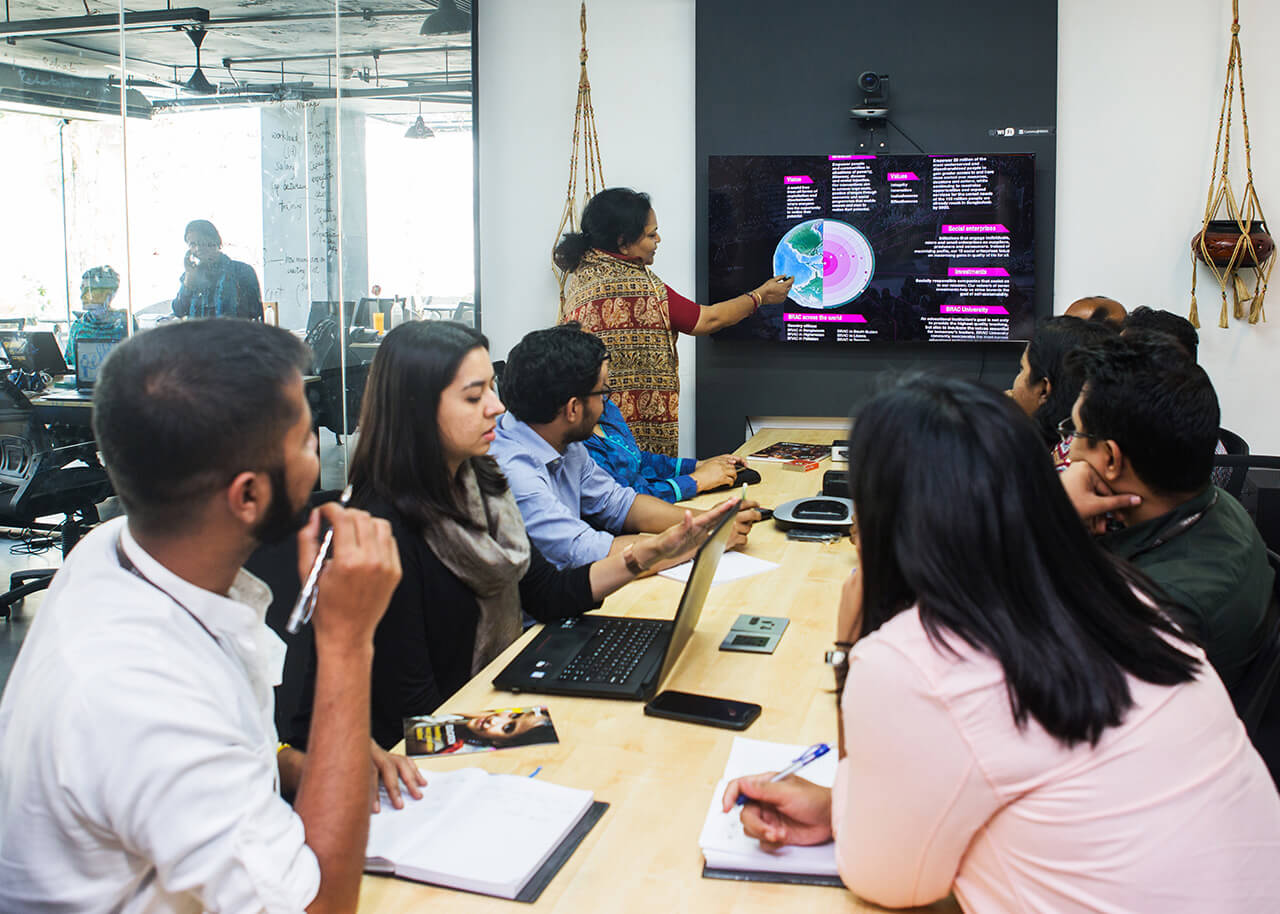What does it mean to build a data-driven culture?
Reading Time: 3 minutes
The global development community is on the verge of redefining itself – and it is all linked to data.
Technology is influencing every aspect of our lives, to the point where the line between science, fiction, and reality is blurred. Non-profit organisations around the world have swiftly embraced the idea of a data-driven culture.
It was found that 75% of nonprofits collecting data, but only 6% of them feel they are using it purposefully. Employees are finding it difficult to leverage data. The reason? An inherent lack in tech-savviness.
What can organisations do to cultivate a data-driven culture and gain employee confidence in new methodologies?
Promoting the idea of data
BRAC’s five-year transformational strategic plan is emphasising on making greater use of data. Many BRAC programmes, particularly microfinance and skills development, are spearheading efforts to promote data-driven methodologies at both the head office and the field.
Since 2014, the microfinance programme has been using technology in its collection process and providing training to credit officers to use a software to manage customer relationships. Field staff in BRAC’s skills programme collects data with the help of TaroWorks and Salesforce – both platforms for smart devices that support staff to manage field operations, identify potential learners, and track learner progress.

The Technology for Development (T4D) unit in the skills programme has been supporting efforts to become technologically proficient. T4D focuses on product development, business intelligence, and operational efficiency, supporting the management team with insights from the informal and formal labour market. The unit collaborates with the programme on activities in analysing data and making case exercises to build their operational capacity.
Competitions to boost employee innovation
The Data-driven Challenge, an in-house competition, was a collaborative venture that became a platform to promote data-driven thinking among field staff – from decision makers to implementers.
Each participant was given a raw dataset based on the projects they were running. Groups were tasked with mining the dataset and recommending a strategic course of action to higher management, based on their insights.
Every year, the skills programme opens and closes branches based on market demand – decisions which are often not data-driven. Teams were given a case exercise to choose where some of these branches should not operate and where they should expand to next.
The dataset factored in electricity facilities, youth population ratio disaggregated by branch or sub-district, learner concentration within trades, and the total number of branches operating since 2012. A conclusive strategic decision pointed to shutting down branches where some trade concentrations were getting saturated.
This challenge showed how numbers can tell deeper stories, and those who deal with them can design roadmaps for the best possible outcomes.

Women in male-dominated industries
Data Talk is an internal seminar where T4D dives into a project’s data to gain insight. The last session focused on female participation in male dominated trades, for example the light engineering sector. The T4D team analysed surveys and presented insights on how to overcome challenges and redesign projects to implement new strategies.
One of the cases examined how light engineering operators should be selected based on their ability and willingness to accommodate female apprentices in their workshops. The trades were divided into different categories, showing varying results of willingness, based on their types. These included air-conditioning and refrigeration repair, motorcycle servicing, and welding, among others.
This dataset was then compared with the information on female learners’ interests towards a particular trade. Recommendations were then made on which trades to prioritise to engage female learners, by comparing whether or not both results narrowed down to the most popular trade.
Data for accuracy
“Management is sometimes forced to take decisions based on empirical assumptions. A well-designed survey and accurate data offer consistency and credibility to the decision-making process,” says Rakshit Bhattacharjee, a specialist for monitoring and evaluation of the skills programme. He explained that through this culture, operational efficiency has increased across various levels – from the head office to the branch offices.
The feedback mechanism became smoother with real-time updates from the field with help of softwares like TaroWorks. Regional managers are better equipped to process raw data, generate insights, and send to higher management for strategic decisions. Focusing on quality data is helping boost transparency and accountability.
Sustainable impact is impossible without leveraging the power of data.. A data-driven culture can enable organisations to operate effectively in a changing landscape.
Ali Iqbal Murshed and Saurin Rahman are external communication specialists at BRAC Communications.





